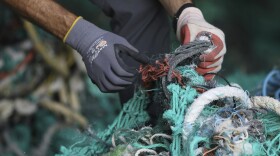There are definite signs of life in Hawai'i's film industry. Season three of "Magnum PI" is underway, and other productions are shooting on Hawai'i island and Maui. One industry expert says film and video are just a part of Hawai’i ‘s growing digital media industry.

"Every sector of our economy, in some way, shape, or form, is touched by film production in our state," said Donne Dawson, Hawai'i's film commissioner.
She says 2018 was Hawai'i's banner year. According to the state Department of Business, Economic Development and Tourism, film and television productions put more than $419 million into the local economy that year, and worth $825 million rippling to other industries.
How have layoffs been since COVID-19?
"They're significant, just like the hotel industry," Dawson said. She sees the two industries working in concert to reboot film production here.
"Film production, television production, their quarantine zone is only going to be as safe in a hotel as it applies to the hotel workers as well. They all are going to be playing by the same rules," she said.
The reality series, "Temptation Island," is just getting underway this week after weeks of tiered arrivals and screening for cast and crew, "Magnum PI" is underway, and Dawson says 5 to 7 other projects are scouting here. She says film industry professionals have produced a comprehensive pandemic production protocol that is getting Hawai'i people back to work.
"I go back to the first big film production that came in here after everything stopped post 9/11. You had one major Hollywood production, a Bruce Willis film that came in here. They immediately contributed 80 thousand room nights at a specific hotel and hundreds of local vendors had to provide goods and services when no one was traveling because of 9/11."
"What the public in Hawai'i wants to know and feel good about is that the highest level of safety precautions are being taken and the medical resources of our communities are not being put in jeopardy. There are between five and seven major productions looking at Hawai'i or engaging with Hawai'i to get back to work in the film industry."
Film and video production is just part of what could be a billion dollar digital media industry in Hawai'i, according to Chris Lee, founder and director of the University of Hawaii Academy for Creative Media or ACM.
"What businesses are coming here? And particularly when people feel like there are just too many tourists. What is it we can actually do here that can attract business in the kind of numbers that people can have living wage jobs?"
Wages in the film and video industry start around $10 an hour, according to Indeed.com. ZipRecruiter says jobs average over $48,000 a year and go much higher for specialized skills.
Multimedia artists and animators' median pay in 2019 was over $75 thousand a year, according to the U.S. Bureau of Labor Statistics. Those are the kinds of jobs Lee is angling for with ACM.
Lee says Hawai'i must build a multi-acre indoor studio and develop homegrown talent in animation, gaming, and digital media in order to stay in the media production industry. He says we can't be just a location.
"There's a new kind of technology, sometimes they call it stage craft, sometimes they call it unreal engine -- it's a combination of gaming technology and traditional visual effects from the movie industry. It's basically virtual production."
Lee says this new technology could make shooting on location a thing of the past.
"They're not going to have to come here at all in the future."
Lee was president at TriStar/Columbia Studios before returning to Hawai'i to start ACM. He says Hawai'i could leverage this moment to lure former island residents back, especially in high-paying remote work occupations.
"Since the demise of sugar and pineapple, we've had one major export, our kids. That's what we've exported to the world. Now we have to give people a reason to come back," he said.
In media, the idea is to get closer to the top of the content producing chain, ultimately telling Hawai'i's stories.
ACM is the first UH program students can enter from any campus across the state. They'll eventually graduate with a four-year degree at the new ACM West O'ahu campus, set to open in October.




